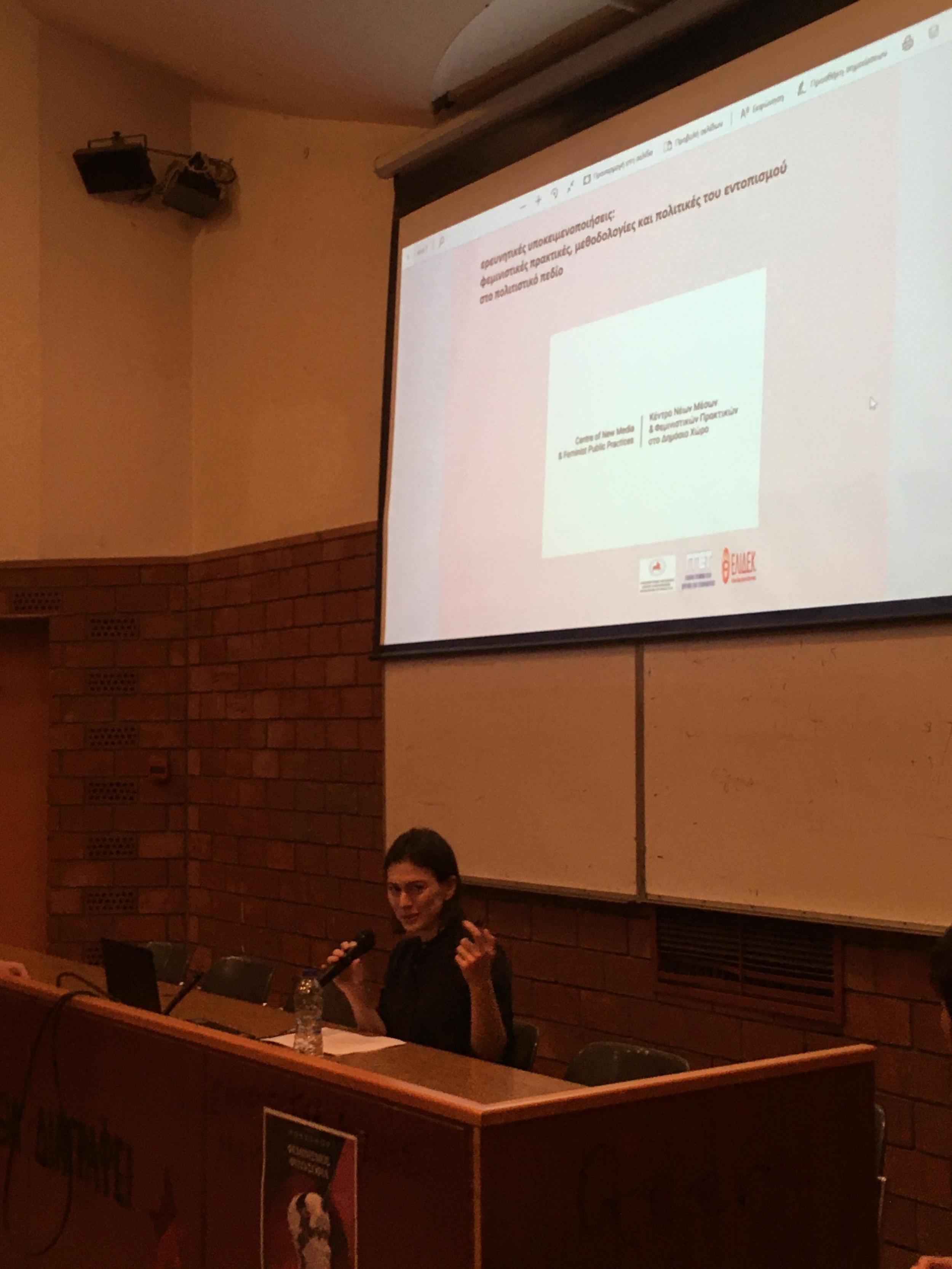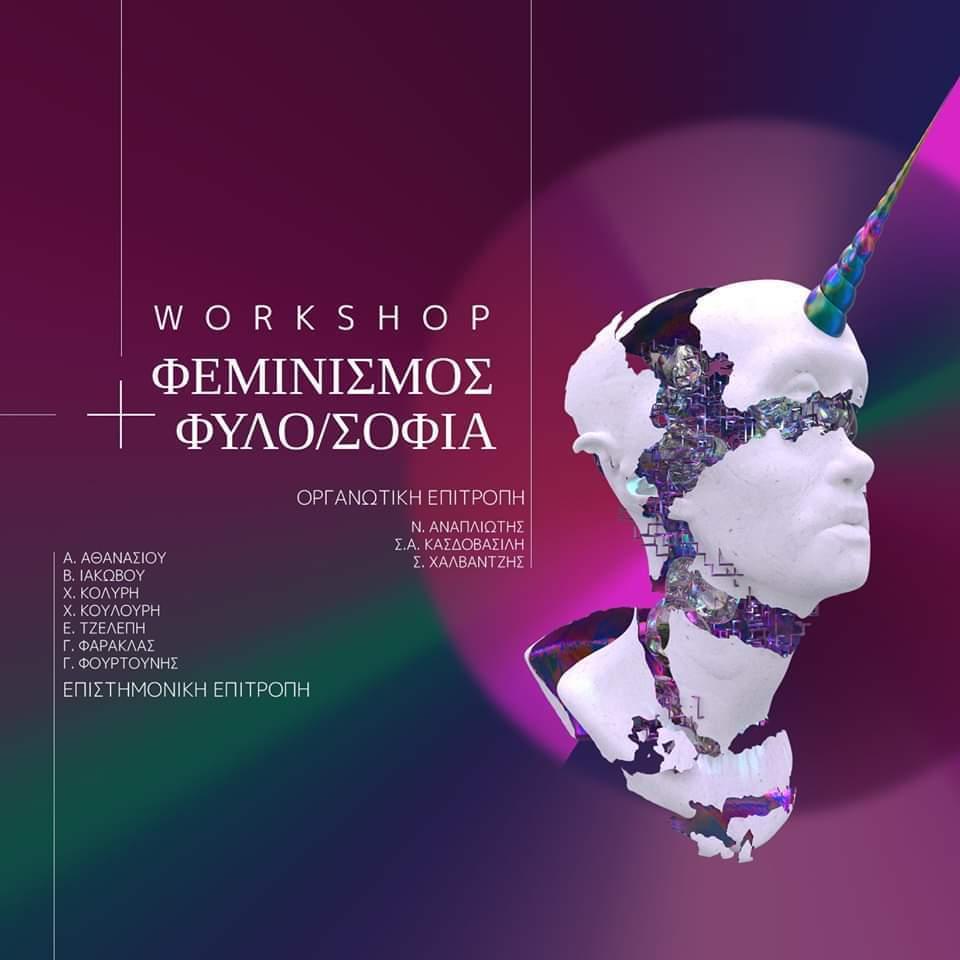Research Subjectifications: Feminist Practices, Methodologies, and Policies of Identification in the Cultural Field
Workshop "Φεμινισμός και Φυλο/σοφία" , Department of Political Science and History, Panteion University of Social and Political Sciences
Valia Papastamou, Elpida Karaba
The presentation focuses on the ways of knowledge production as well as on the methodological practices of feminist research, conceptualizing research as work in the expanded cultural field of the globalized -knowledge and information- economy. It starts with questions posed by feminist epistemologies and derives from the materialist field of postmodern theory; from the emerging field of the knowledge genealogies of new materialisms; as well as from theories of the broader cultural field, the economy of culture and the new media theory.
It further questions the transformative perspective of feminist posthumanist discourse in both the research and artistic practice and through the study of specific examples, it examines the relationship between the material and the discursive with the notion of affect. This process leads to meta-methodological approaches and to coalitions that establish new posthuman pedagogical practices of vulnerability.
It also attempts to map the conditions under which bodies are configured, the technology and matter involved in the production of subjectivity as well as the emergence of new feminist subjectivisations through the dynamics of knowledge systems as well as the performativity of diffractive methodologies.
The presentation, therefore, refers to a current and ongoing cartography of feminist initiatives and to the epistemological tools of the research practice. These tools activate and transform the research process as well as the relationship between the researcher and the phenomena under study, as they attempt a shift from the researcher's 'I' to a collective body of multiple research subjectivities. The goal of this research is the emergence of distributed, open networks of knowledge, where feminist voices can be situated and understood as manifold social positions in the rhizomatic network cartography.

